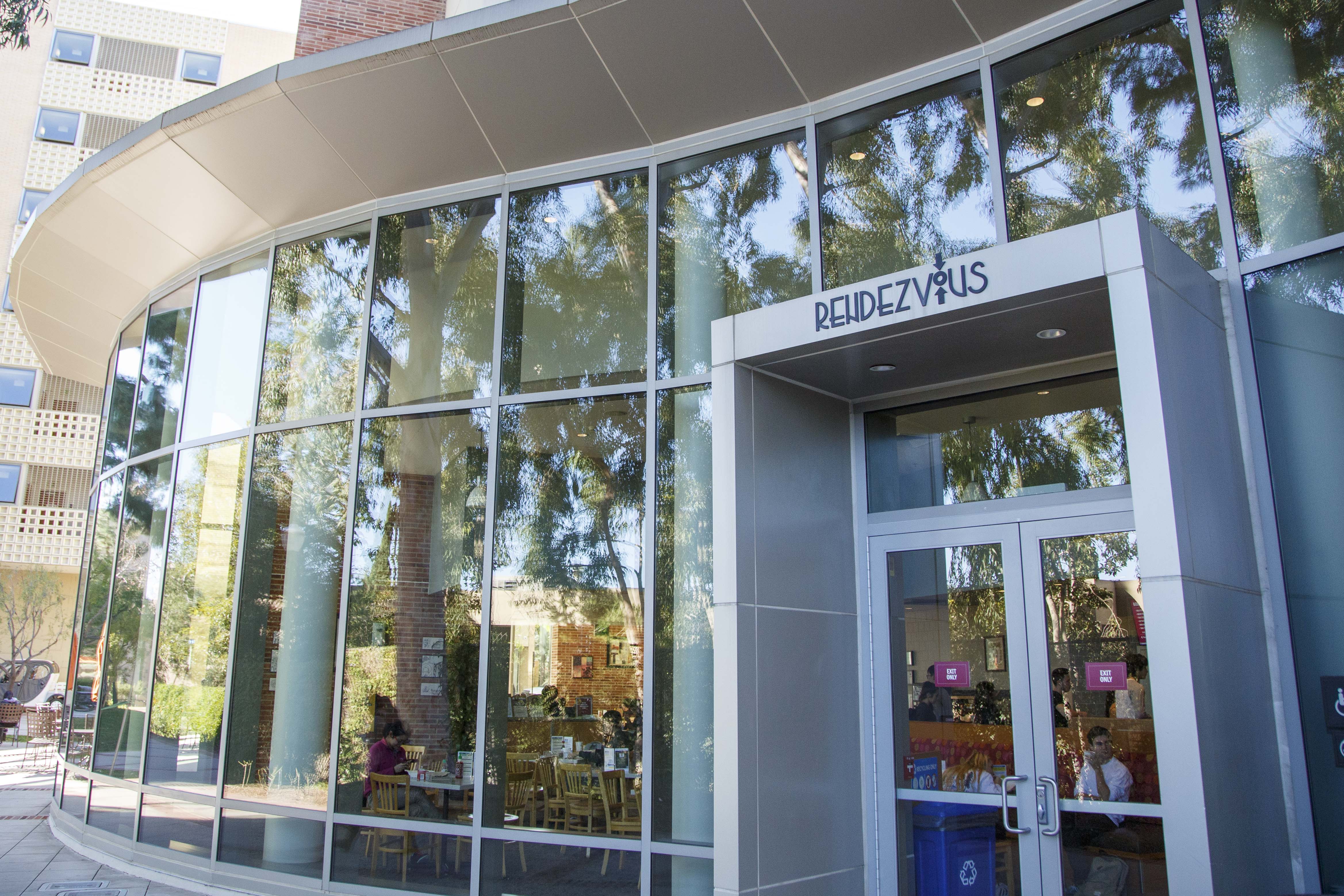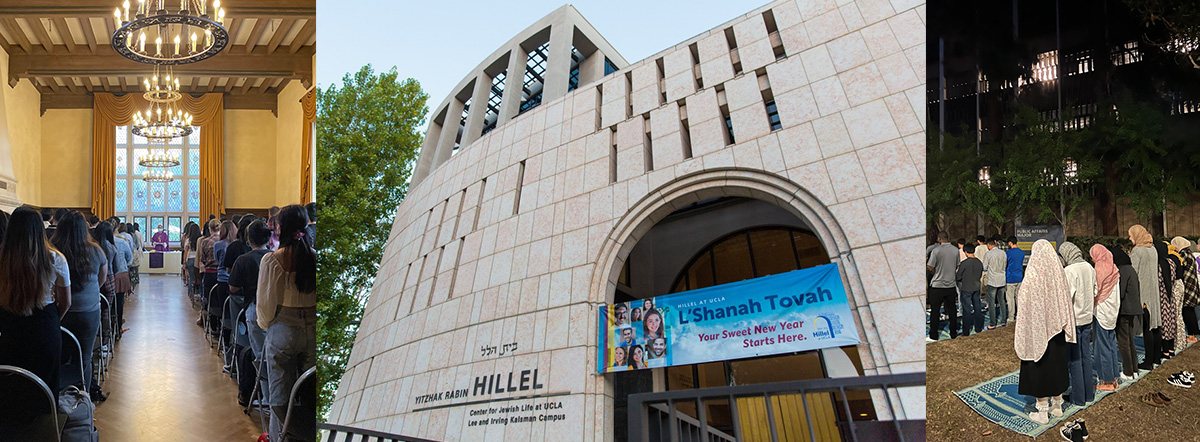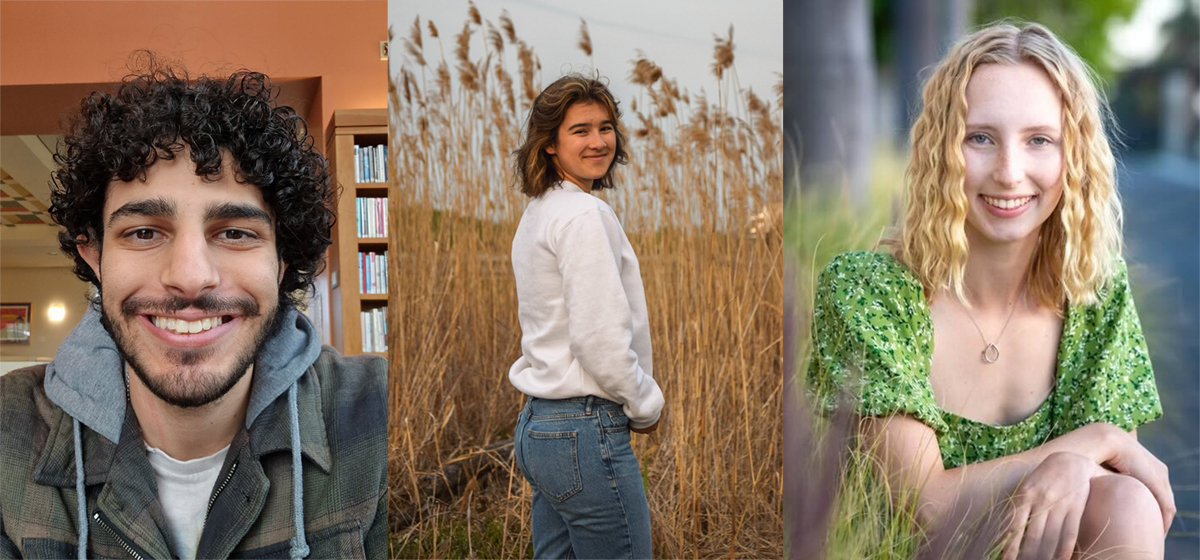Students share experiences with UCLA accommodations during Ramadan
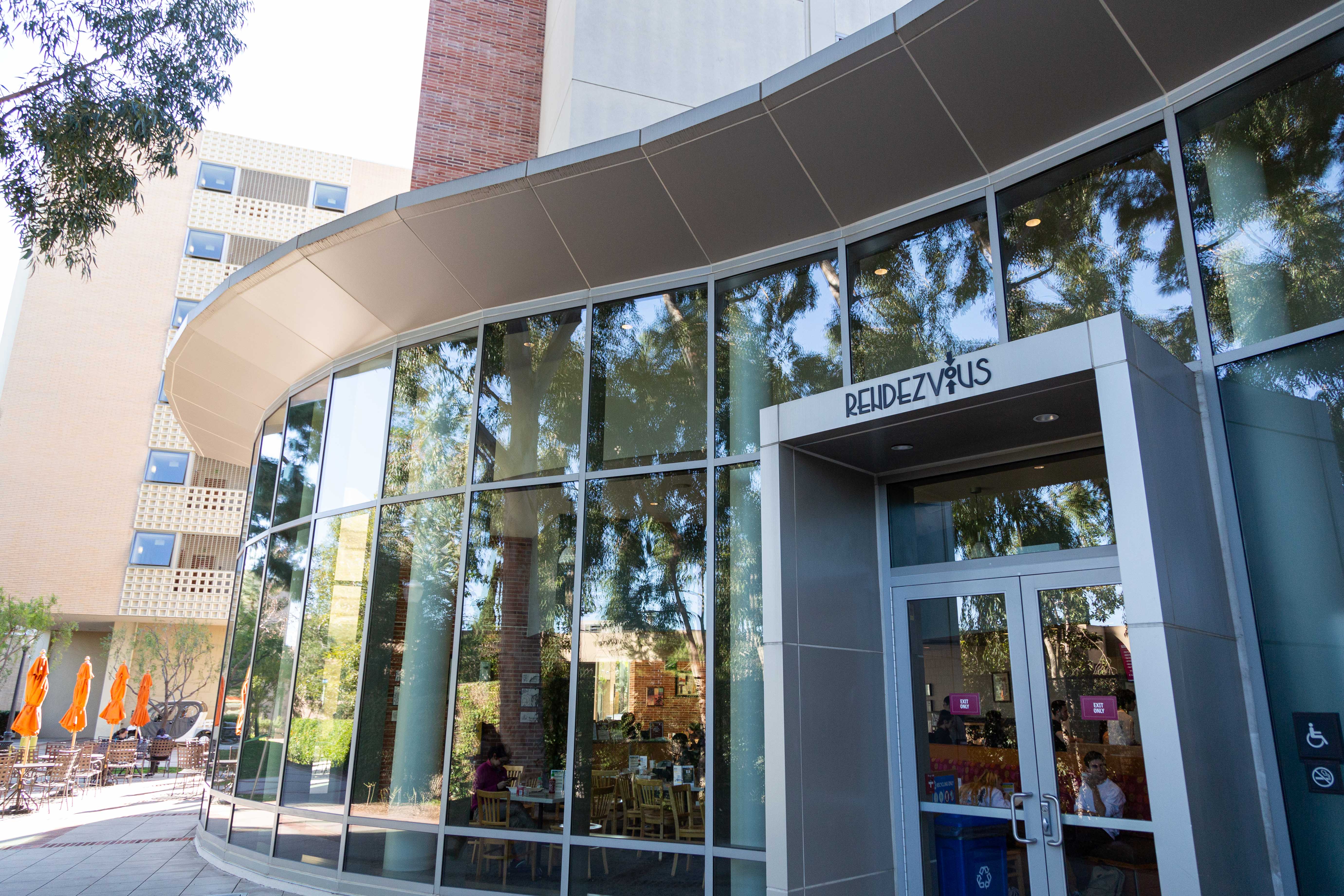
Pictured is the Rendezvous takeout dining hall. Students observing Ramadan were able to collect takeout dining boxes from Rendezvous to help facilitate their fast. (Daily Bruin file photo)
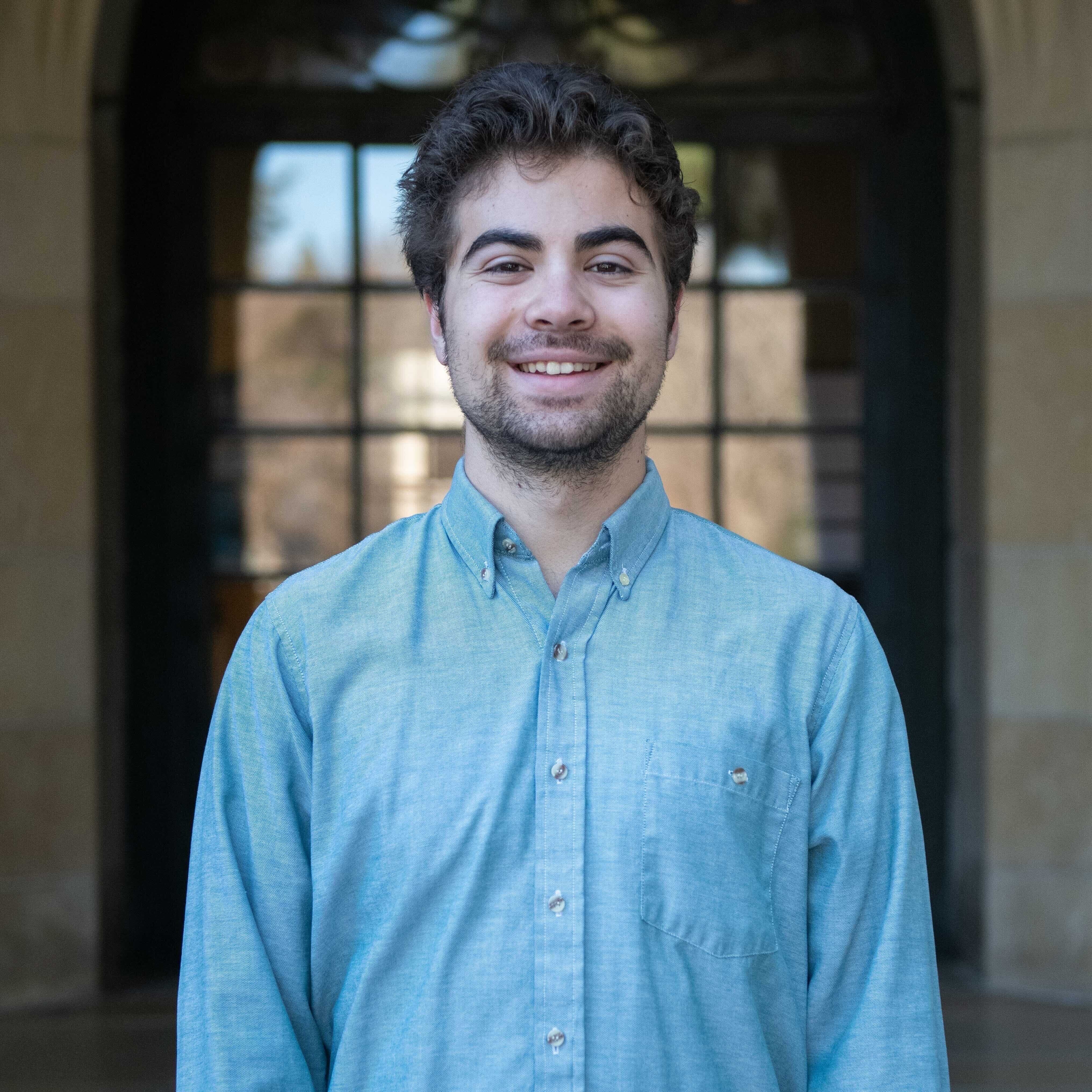
By Sam Mulick
April 9, 2024 8:09 p.m.
This post was updated April 9 at 9:23 p.m.
For the past four weeks, second-year psychobiology student Tasnim Jahan has woken up just before daybreak to eat before beginning her daylong Ramadan fast. But as the sun sets each day and she heads back from classes, Jahan – as well as other Muslim students living on the Hill – go to UCLA dining halls to break their fast.
Ramadan is the ninth and holiest month of the Islamic calendar and a time when many Muslims observe the holiday by fasting from dawn until dusk. The act of fasting is intended to help people reflect on themselves and their relationship with God, as well as focus on charity for those in need, according to the Associated Press.
For students who are participating in the fast, UCLA Dining – in collaboration with the Muslim Student Association – has made accommodations to its menu and dining schedule. The accommodations include a designated dining location for students to break their fast and no menu items prepared with alcohol or pork, in line with Islamic dietary restrictions, according to an emailed statement from UCLA Dining.
Epicuria at Covel is the designated dining location for Ramadan meals from Sunday through Thursday, while De Neve is the designated dining hall on Fridays and Saturdays, according to UCLA Dining. Dinner menus have included halal lamb, chicken, beef and fish, and takeout dining halls Rendezvous and The Study at Hedrick are offering options such as a bundle of eggs, dates, almonds and grapes, according to UCLA Dining.
Jahan, who is a member of MSA, said one challenge she has had in breaking her fast on campus has been how busy Epicuria has been during the iftar – or sundown – meal, adding that she sometimes has had to wait up to 30 minutes to eat.
“Especially during Ramadan, it’s just been really busy,” she said. “I found myself having to plan my meal time beforehand and order food using the online ordering app, or going to De Neve, which doesn’t really have halal options.”
Jahan said she often has excess food from the takeout meal bundle she picks up every day. However, she said she wishes she could also pick up a bundle in De Neve, where she lives, since it would save her a daily trip uphill.
Although accommodations exist on the Hill, ASUCLA restaurants have not received any specific requests for Ramadan-related dining accommodations, according to an emailed statement from ASUCLA.
Jahan added that although she breaks her fast on some days with a meal provided by MSA, the organization does not offer meals every day.
Aminah Shaikh, a member of MSA’s Ramadan committee, said the iftars hosted by MSA four times a week have been a great way for her to interact with people in her spiritual community, especially because she is celebrating Ramadan away from home for the first time.
“It’s been really nice to have a community to break fast with, because, without that, I would just be breaking fast alone,” Shaikh said.
Shaikh, who is also a first-year education student, added that UCLA has also been accommodating to Muslim students by offering boxes of food for suhoor, the meal before sunrise. She added that she was given permission to work reduced hours at her UCLA Dining job during Ramadan, giving her more time to focus on prayer.
But despite these efforts at accommodations, Jahan said she feels there should be more awareness about the challenges of being a full-time student while respecting the practices of an important spiritual month. She added that when she tried to ask one of her professors for accommodations to skip a lecture for Eid al-Fitr – the holiday that occurs at the end of Ramadan – the professor refused.
Shaikh said it was difficult to balance studying for finals during the first week of Ramadan.
“We want to focus on prayer, and oftentimes, prayer also will go really late into the night,” she said. “You’ll finish at 12, 1-ish, so it’s hard choosing whether to study or to go to prayer, but it was nice having other Muslims who are going through the same thing to have that support.”
Jahan added that even though Ramadan is a very important time for Muslims to focus on themselves and their spirituality, she invites anyone to join the journey of fasting and self-reflection.
“Anyone can really join, and we’d love for people to learn more about what we’re doing during this month,” she said. “When we fast, I feel personally better throughout the day. … In a way, it cleanses your soul.”




